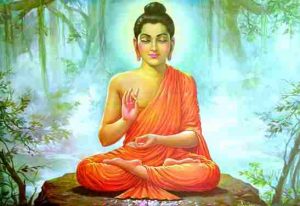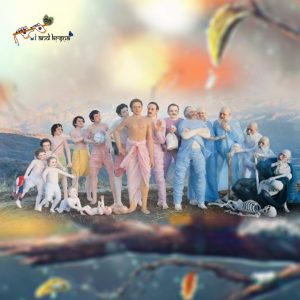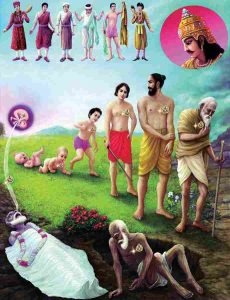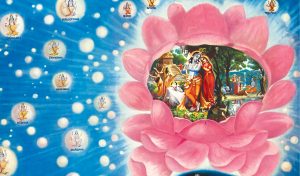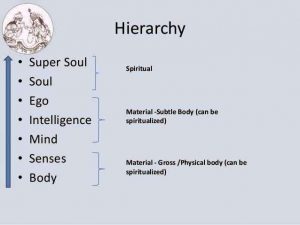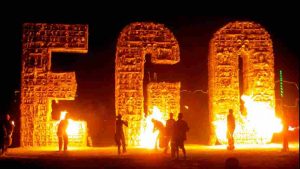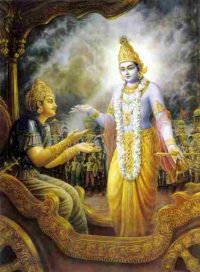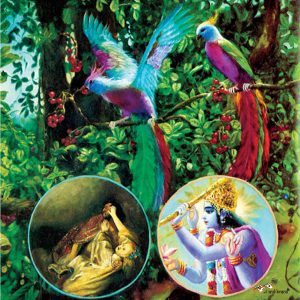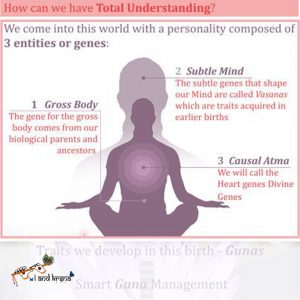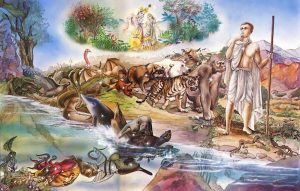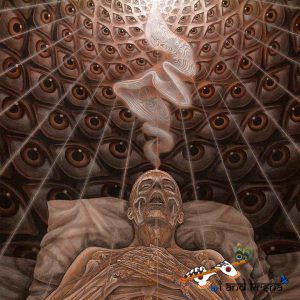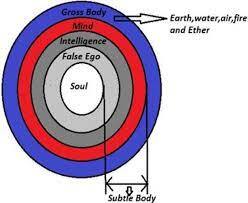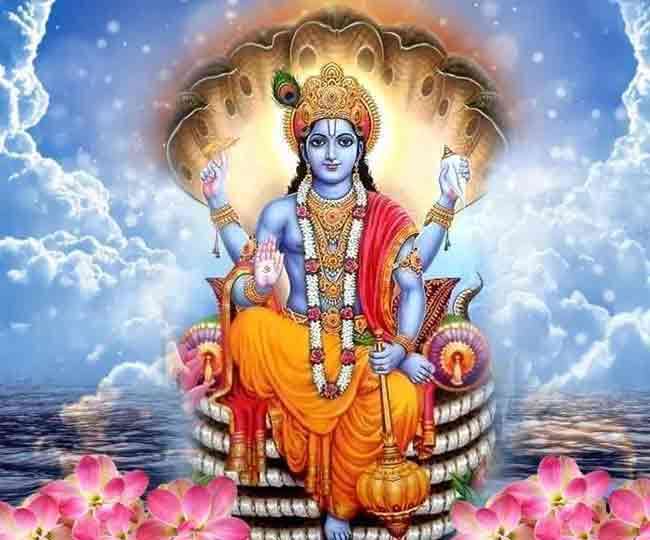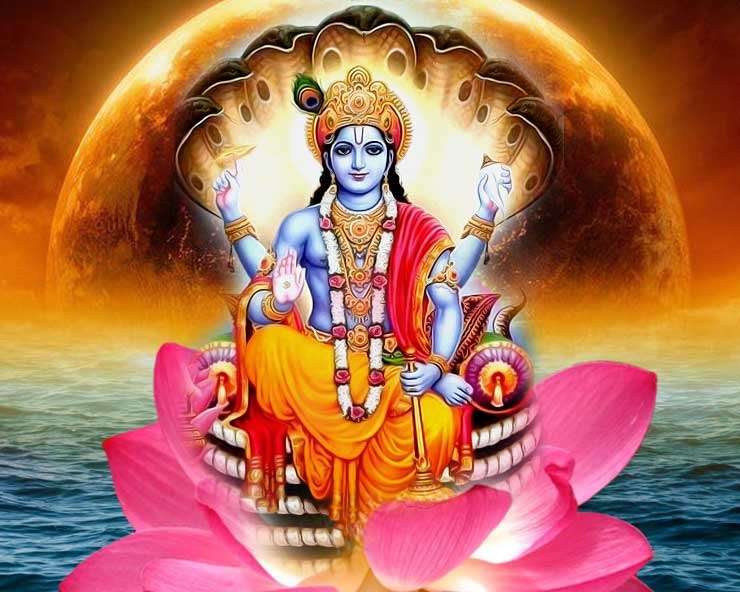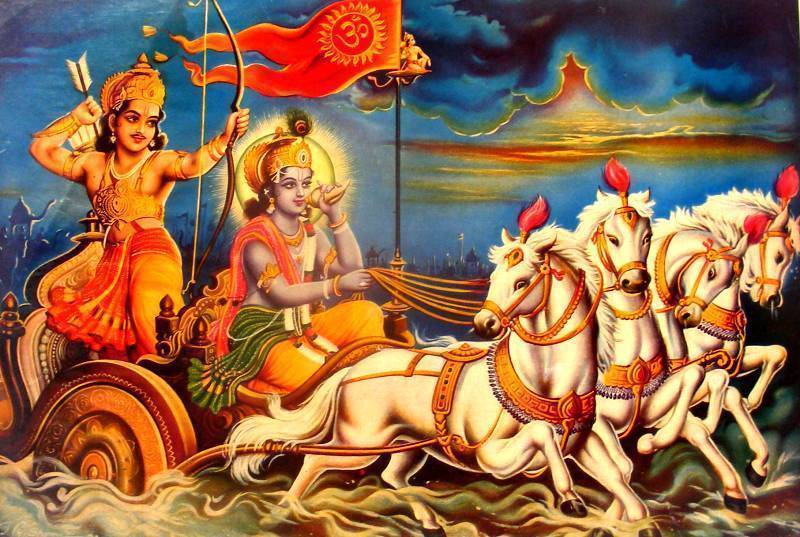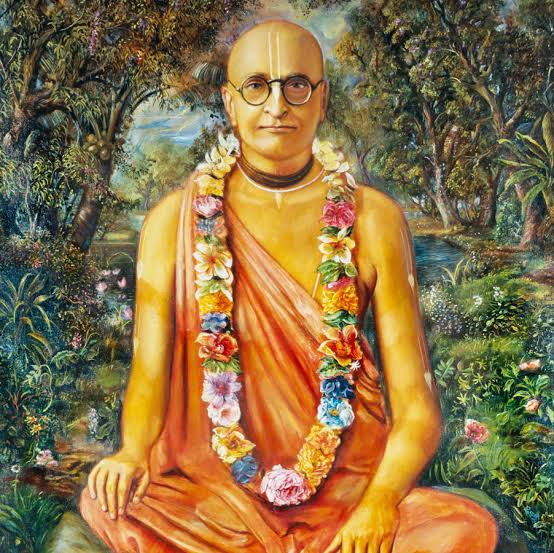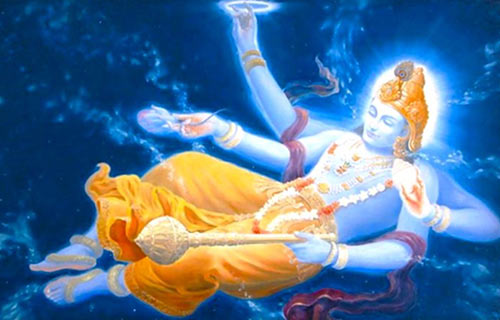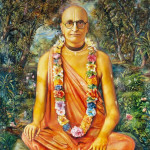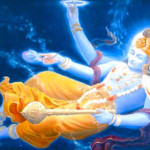Lord Buddha did not give any information about the soul.
When the spiritual spark, which is described as one ten-thousandth part of the tip of a hair, is forced into material existence, that spark is covered by gross and subtle material elements. The material body is composed of five gross elements–earth, water, fire, air and ether–and three subtle elements–mind, intelligence, and ego. When one attains liberation, he is freed from these material coverings. Indeed, success in yoga involves getting free from these material coverings and entering into spiritual existence.
Lord Buddha‘s teachings of nirvana are based on this principle. Lord Buddha instructed his followers to give up these material coverings by means of meditation and yoga. Lord Buddha did not give any information about the soul, but if one follows his instructions strictly, he will ultimately become free from the material coverings and attain nirvana. When a living entity gives up the material coverings, he remains a spirit soul. This spirit soul must enter into the spiritual sky to merge into the Brahman effulgence. Unfortunately, unless the living entity has information of the spiritual world and the Vaikunthas, there is a 99.9 percent chance of his falling down again into material existence. There is, however, a small chance of being promoted to a spiritual planet from the Brahman effulgence, or the brahmajyoti. This brahmajyoti is considered by impersonalists to be without variety, and the Buddhists consider it to be void. In either case, whether one accepts the spiritual sky as being without variety or void, there is none of the spiritual bliss which is enjoyed in the spiritual planets, the Vaikunthas or Krishnaloka. In the absence of varieties of enjoyment, the spirit soul gradually feels an attraction to enjoy a life of bliss, and not having any information of Krishnaloka or Vaikunthaloka, he naturally falls down to material activities in order to enjoy material varieties.
Source: A.C. Bhaktivedanta Swami Prabhupada (2014 edition), “Srimad Bhagavatam”, Fourth Canto, Chapter 23 – Text 15

